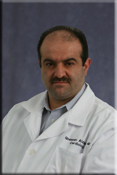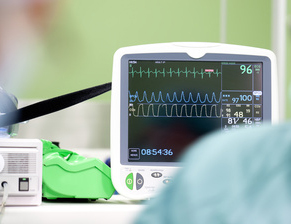Cardiology
Cardiologist in Sugar Land at HMC

Ghassan Alzaghrini M.D.
(713) 917-5723
What is Cardiology?
According to Merriam-Webster Dictionary, cardiology is “the study of the heart and its action and diseases.” The cardiologist is the doctor that practices cardiology and cares for the heart health of his or her patients.
Cardiology is a sub-category of internal medicine. Internists wanting to specialize in cardiology must first become board-certified in internal medicine before being able to take the examination for cardiology.
 What a Cardiologist Does
What a Cardiologist Does
Patients are usually referred to a cardiologist by an internist or family practitioner after a heart-related problem is found or suspected. The cardiologist usually begins a checkup by taking the patient’s blood pressure and weight, then checking the heart, lungs, and blood vessels for abnormalities. Cardiologists will often require an ECG, x-ray, or blood test to further diagnose problems.
Cardiologists help patients stabilize or reverse the progression of their heart problem through medical treatment and by instructing them on heart-healthy lifestyle changes, such as diet and exercise. They also can assess the patient’s currently health and predict potential heart problems and how to avoid them.
Education Requirements
As with all specialties, the basic credential for a cardiologist is an M.D. (Doctor of Medicine) or D.O. (Doctor of Osteopathy). Doctors desiring to specialize in cardiology must first become certified in internal medicine by the American Board of Internal Medicine. To do this, doctors need to complete 36 months of training as a resident in internal medicine and pass the ABIM specialist examination.
Once the doctor is certified in internal medicine he or she must then complete an additional 36 month accredited fellowship in cardiology. After a passing grade on the Cardiovascular Diseases examination, the doctor is now a board-certified cardiologist. Like all doctors, cardiologists must pass the United States Medical Licensing Examination to practice medicine.